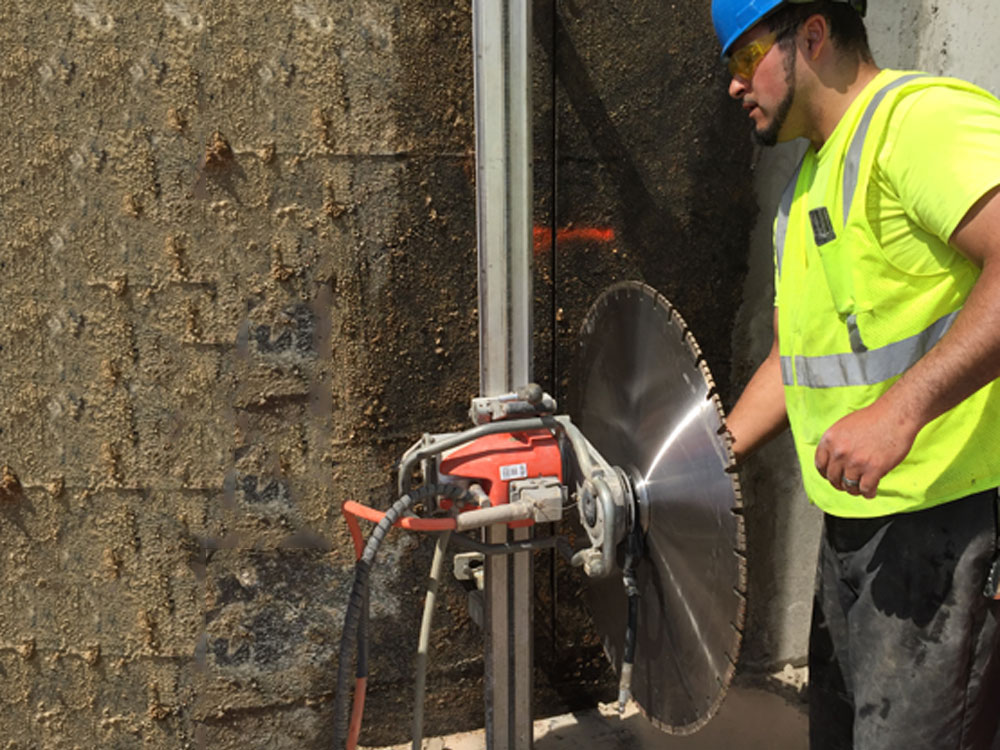

Wall saw cutting** is a precision diamond blade cutting technique used to make vertical or inclined cuts in reinforced concrete or masonry walls. It uses a track-mounted machine that runs along a guide rail to achieve accurate, clean cuts in vertical or sloped surfaces. Wall sawing is most commonly performed with hydraulic or electric power units and is suitable for thicknesses up to 800 mm or more.
Door, window, and ventilation openings in existing concrete or block walls.
Precision cutting for elevator shafts, stairwells, and mechanical access points.
Removing portions of load-bearing walls as part of retrofits or remodeling projects.
Cutting for beam pocket installation, expansion joints, or section removal.
Precise, low-vibration cutting for removing sections of walls in sensitive environments such as hospitals, labs, or operational buildings.
Preparing walls for the installation of reinforcement, carbon fiber, or jacketing.
Facilitating MEP (Mechanical, Electrical, Plumbing) upgrades.
Creating access channels for pipe penetrations, ducts, cable trays, or HVAC systems in concrete walls.
Track-mounted wall saw machine
Circular diamond blade (typically 500 mm to 1200 mm diameter)
Hydraulic, electric, or high-frequency power unit
Water cooling system (to reduce dust and cool the blade)
Site Evaluation: Assess the wall thickness, reinforcement, and cut location.
Mounting: Attach the aluminum track to the wall for guided movement.
Setup: Install blade and connect water supply and power unit.
Sawing: Begin cutting along the defined path, often in stages to avoid blade overheating.
Removal: Once cut, the wall segment is removed using crane, hoist, or manually.
© 2025 Rukn Alabtal Design By: sialweb